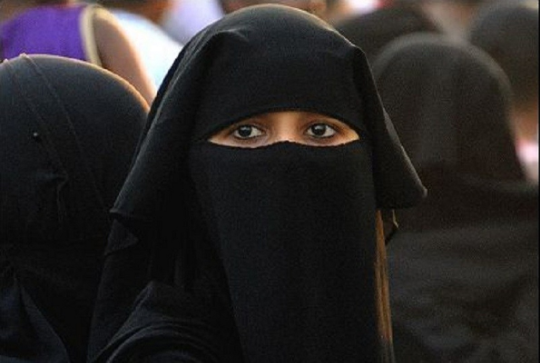Burqa Ban: Islamophobia Disguised
Dania Sheikh | 22 March 2021
SRI LANKA has grabbed global headlines after its public security Minister Dr. Weerrasekera announced in the parliament that he had signed a paper proposing a ban on wearing burqas in public places and shutting down some 1000 madras to eradicate religious extremism in the nation. This bill, if proposed, by the government will most likely be implemented since the Mahindra Rajapaksa government enjoys a two-thirds majority in the parliament.
Weerasekara’s statement has perturbed and outraged the Muslim community who perceive it as an attempt to further marginalize the country’s Muslims who constitute 10% of the 21 million population of Sri Lanka. Sri Lanka has been under the scrutiny of UNHCR for human rights violations against its minorities. The Rajapaksa government is infamous for its hostility towards Muslims and Tamils. The current government has been censured by the global watchdogs and international media outlets for forced cremation of the Muslims who died because of covid. The international fury pressurised the government to take down the compulsory cremation policy. This plan to propose a ban on the burqa should be seen in this context of the harsh treatment meted out the country’s Muslim populace to understand the ulterior motive behind this ban.
The public health minister Weerasakeera claims that imposing a ban on the burqa is necessary to safeguard the national interest. The government is trying to justify the legality of the ban by claiming that the Quran doesn’t mandate women to wear a burqa, it’s a cultural practice that has evolved recently, and therefore imposing a ban on its use will not be an infringement of freedom of religion but it is an outright infringement of freedom choice.
The government has held that this ban is necessary to tackle the growing fundamentalism in the country which provides a breeding ground for terrorism. Anti-Muslim sentiment surged in the country after the Easter bombings in 2019 which was carried out by ISIS and claimed the lives of about 258 people. The country’s Muslim population since then has been at the receiving end of the angst and hatred, immediately after the attack, several Muslim shops and houses were gutted down. The punitive measures being taken against an entire community expose the bias and prejudice of the establishment against the Muslims.
Terrorism cannot be tackled by resorting to islamophobia, maligning Islam and Islamic practices is not an antidote for terrorism. People have to be treated with dignity. Deprivation of a safe political and social space is unjust and denies them the right to practice their religion and culture freely. The proposed ban legitimizes the unfounded hostility against burqa-clad women and threatens to alienate the Muslim population and fan communal tensions. The Institutionalisation of religious intolerance does irreversible damage to a country’s social fabric.
The ban is being viewed by many political analysts as an attempt to stoke communal tensions and to appease the majority Buddhists population of the country for electoral gains. The fact that the minister made this announcement from a temple makes his motive explicit. Establishing a link between Islam and terrorism is the oldest trick in the bag to stir up xenophobia.The majority appeasement and violation of human rights poses a bigger threat to national security than a piece of clothing ever can.
The UNHCR has been critical of several European nations which have imposed a ban on wearing burqas in public spaces. Recently, Switzerland held a referendum in which 51% of the population voted in favour of outlawing the burqa in public places. UN Human Rights Council criticised the Swiss ban as “discriminatory” and “deeply regrettable”.
The Office of the UN High Commissioner for Human Rights (OHCHR) said in a statement: “Vague justifications on how the wearing of face coverings would be a threat to safety, health or the rights of others cannot be considered a legitimate reason for such an invasive restriction of fundamental freedoms.”
It added that “in the wake of a political publicity campaign with strong xenophobic undertones, Switzerland is joining the small number of countries where actively discriminating against Muslim women is now sanctioned by law”, which is “deeply regrettable.” Ironically, these democratic States have employed democratic methods to undermine individual rights. The countries claim that the burqa hampers social integration and poses a threat to national security. Social integration should not mean forced assimilation, coercion to abandon religion and cultural practices will dampen this project of social integration that these democratic countries are pursuing.
Imposing a ban on wearing a burqa is bad as its compulsion. Penalizing people for their choice of clothes is an assault on human rights, it is condescending and reverses the progress made by the feminist movement.
As far as national security is concerned these states have done little to curb the gun violence which has surged rapidly in the past few years. Similar enthusiasm hasn’t been shown to ban the acquisition and possession of firearms. The starkly different response towards terror attacks carried out by non-Muslims reveals blatant Islamophobia. Religion and ethnicity become irrelevant when the perpetrator of the mass shooting isn’t a Muslim.
Dania Sheikh, Writer.
This article was originally published on Kashmir Observer.
Views in this article are author’s own and do not necessarily reflect CGS policy.
